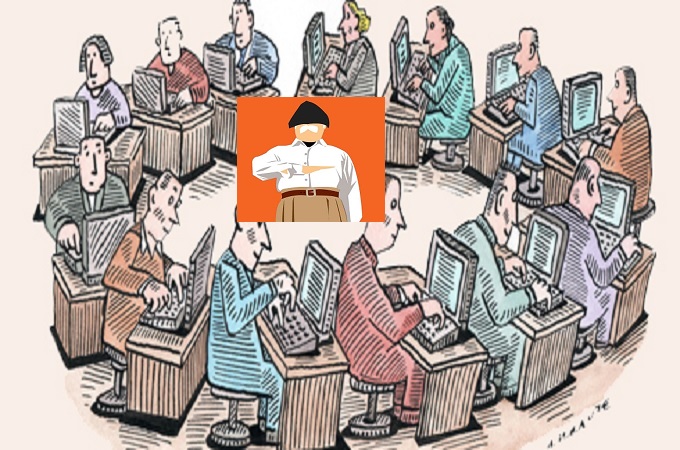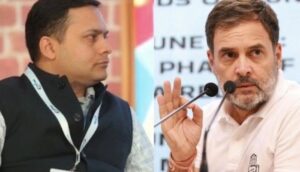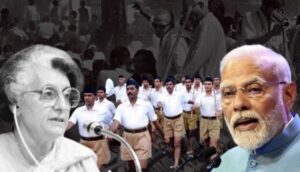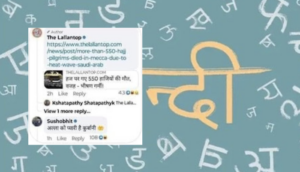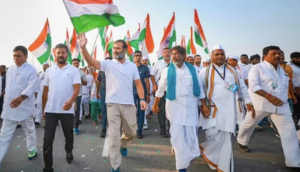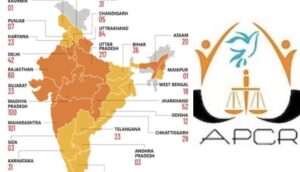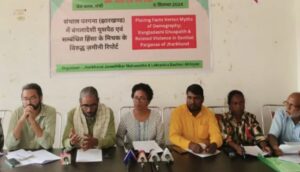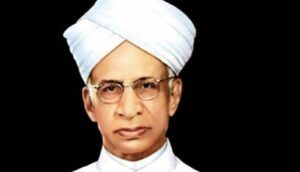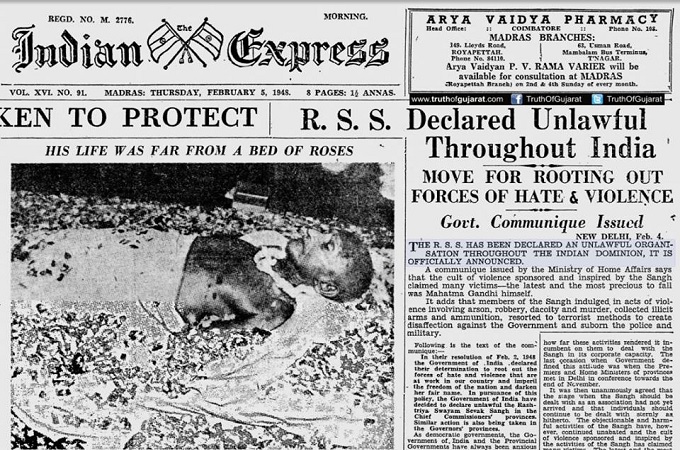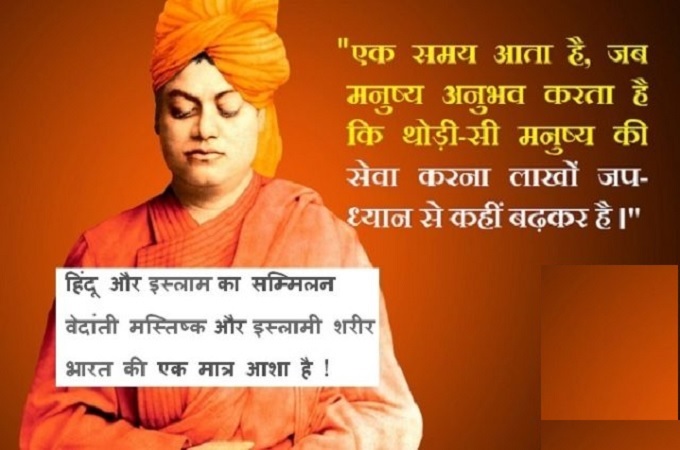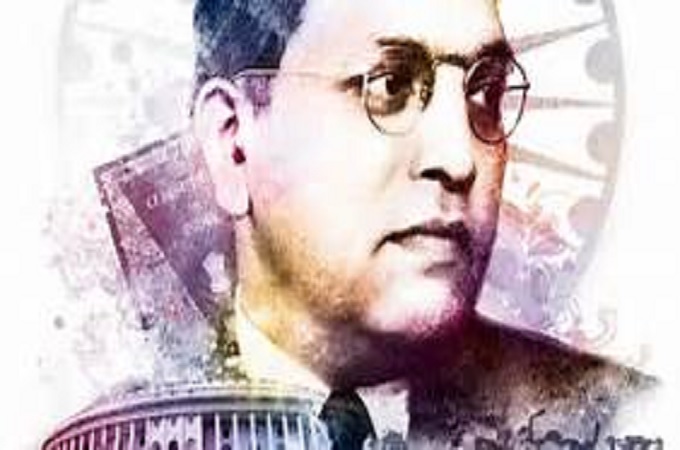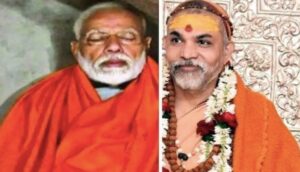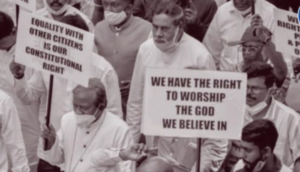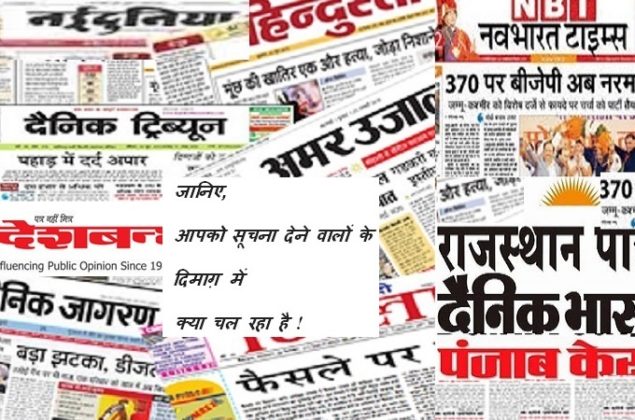
जनसत्त्ता
मर्ज और दवा
विशिष्ट पहचान नंबर यानी आधार की अनिवार्यता का दायरा सरकार लगातार बढ़ाती रही है। इसके पीछे प्रशासनिक कामकाज, योजनाओं और वित्तीय लेन-देन में पारदर्शिता सुनिश्चित करने से लेकर अपराधों पर काबू पाने और आतंकवाद से कारगर ढंग से निपटने जैसे तमाम तर्क सरकार की तरफ से दिए जाते रहे हैं। हालत यह है कि फोन एक्टिवेट कराने से लेकर बैंक खाता खुलवाने तक कोई भी जरूरी काम बगैर आधार के नहीं हो सकता। इस दबाव ने देश की लगभग समूची आबादी को आधार के दायरे में ला दिया है। बहुत ही कम ऐसे लोग बचे होंगे जिनके आधार कार्ड अब तक न बन पाए होंगे। लेकिन क्या आधार से सचमुच वह सबकुछ हासिल हो सकेगा, जिसका दावा सरकार कर रही है? सर्वोच्च न्यायालय ने इस पर संदेह जताया है। आधार की वैधता को चुनौती देने के लिए दायर याचिकाओं पर सुनवाई करते हुए गुरुवार को सर्वोच्च अदालत ने जो कुछ कहा उसका लब्बोलुआब यह है कि आधार हर मर्ज की दवा नहीं है। मामले की सुनवाई प्रधान न्यायाधीश की अध्यक्षता वाला पांच सदस्यीय संविधान पीठ कर रहा है।
सुनवाई के दौरान केंद्र के महाधिवक्ता ने कहा कि इससे बैंक धोखाधड़ी, धनशोधन, आय कर चोरी आदि पर लगाम लगाने में मदद मिलेगी। इस पर पीठ का कहना था कि कल्याणकारी योजनाओं का लाभ वास्तविक लाभार्थियों को ही मिले इसमें तो आधार मददगार हो सकता है, पर बैंक धोखाधड़ी कैसे रुक सकती है? बैंक से भारी कर्ज लेकर डकार जाने की घटनाएं अनेक पहचान-दस्तावेजों के कारण नहीं होतीं। बैंक अधिकारी जानते हैं कि वे किसे कर्ज दे रहे हैं। बैंक धोखाधड़ी के अधिकतर मामलों में किसी न किसी अधिकारी की मिलीभगत होती है। इसलिए आधार के बल पर बैंक धोखाधड़ी रोकने की बात खोखली ही जान पड़ती है। सुनवाई के दौरान अदालत ने यह तक टिप्पणी की, कि कल को हो सकता है आप डीएनए टेस्ट के लिए खून का नमूना मांगें। क्या यह निजता के अधिकार का हनन नहीं है? आधार के जरिए आतंकवाद से निपटने के दावे पर भी अदालत ने सवाल उठाए हैं। पीठ ने पूछा, क्या आतंकी सिम के लिए आवेदन करते हैं; वे तो सैटेलाइट फोन का इस्तेमाल करते हैं। क्या कुछ आतंकियों को पकड़ने के लिए सवा सौ करोड़ की आबादी को मोबाइल फोन को आधार से लिंक कराने के लिए कहा जा सकता है!
सरकारी दावों की अतिरंजना का अंदाजा इस बात से भी लगाया जा सकता है कि सरकार आधार को असमानता खत्म करने वाली योजना के तौर पर भी पेश करती रही है। लेकिन आधार शुरू होने के बाद से क्या असमानता रंचमात्र भी कम हुई है? उलटे यह और बढ़ती जा रही है। स्थिति यह है कि देश में दो तिहाई संपत्ति पर महज एक फीसद लोगों का कब्जा है। यह पहला मौका नहीं है कि जब आधार को लेकर सरकार को अदालत में खरी-खोटी सुननी पड़ी हो। कल्याणकारी योजनाओं से आगे बढ़ कर आधार की अनिवार्यता का दायरा बढ़ाते जाने पर अदालत ने कई बार नाराजगी जताई थी। पर इससे कोई फर्क नहीं पड़ा। निजता को नागरिक का मौलिक अधिकार मानने के सर्वोच्च न्यायालय के ऐतिहासिक फैसले से सरकार के रुख को तगड़ा झटका तो लगा, पर वह अपनी जिद पर कायम रहते हुए हर चीज को आधार से जोड़ने के नए-नए फरमान जारी करती रही है। एक बार फिर अदालत ने सरकार के रुख से प्रथम दृष्टया असहमति जताई है। देखना है कि अदालत में चल रहे मामले की अंतिम परिणति क्या होती है!
हिंदुस्तान
कारोबारी युद्ध का नया दौर
कहा जाता है कि दो देश जब लड़ाई लड़ते हैं, तो भले ही किसी की हार, किसी की जीत होती हो, लेकिन जब वे कारोबारी लड़ाई लड़ते हैं, तो हर कोई हारता है। ऐसी ही एक कारोबारी लड़ाई इन दिनों अमेरिका और चीन के बीच शुरू हुई है, जिससे पूरी दुनिया ही आशंकाओं से घिरने लगी है। पिछले महीने अमेरिका के राष्ट्रपति डोनाल्ड ट्रंप ने चीन से आयात होने वाले स्टील पर 25 फीसदी और एल्युमिनियम पर दस फीसदी सीमा शुल्क लगा दिया, तो दुनिया के तमाम देशों के चेहरे पर शिकन उभर आई। लेकिन ट्रंप यहीं नहीं रुके, उन्होंने इसके कुछ समय के भीतर ही चीन से आयात होने वाली 1,300 चीजों पर 25 फीसदी शुल्क लगा दिया।
इस बार चीन भी चुप नहीं बैठा और बुधवार को उसने भी जवाबी हमला बोल दिया। बुधवार को चीन ने अमेरिका से आयात होने वाले 106 सामानों पर शुल्क में खासा इजाफा कर दिया, जिनमें सोयाबीन जैसे तिलहन भी शामिल हैं। इसके बाद कोई शक नहीं रह गया कि अमेरिका और चीन के बीच कारोबारी युद्ध शुरू हो चुका है। यह ठीक है कि पिछली मंदी के बाद से अमेरिका अपने उद्योग-धंधों को लेकर काफी सशंकित रहने लगा है और उसकी अर्थव्यवस्था का आत्मविश्वास अभी भी पूरी तरह लौट नहीं सका है। फिर भी यह कारोबारी युद्ध का कारण नहीं है। खुद अमेरिका के विशेषज्ञ तक मानते हैं कि उसका कारण राष्ट्रपति डोनाल्ड ट्रंप की वह बेचैनी है, जो आगा-पीछा सोचने से पहले ही बहुत कुछ कर गुजरती है। आर्थिक समस्याओं से निपटने के लिए अमेरिका ने इससे पहले कभी ऐसी खोखली लोकप्रियतावादी रणनीति नहीं अपनाई।
यह सच है कि अमेरिका और चीन के बीच का व्यापार संतुलन काफी परेशान करने वाला हो चुका है। अमेरिका चीन से हर साल 506 अरब डॉलर का सामान आयात करता है और बदले में चीन को होने वाला उसका निर्यात महज 130 अरब डॉलर ही है। पर यह हाल सिर्फ अमेरिका का नहीं है। दुनिया की बहुत सी अर्थव्यवस्थाओं से चीन का व्यापार संतुलन ऐसा ही है। यही वजह है कि चीन इस समय धन के बहुत बड़े सरप्लस पर बैठा हुआ है। यह शिकायत भी आम है कि चीन इसके लिए तमाम एकाधिकारवादी तरीके अपनाता रहा है। लेकिन यह ऐसी समस्या है, जिससे निपटने का काम पूरी दुनिया को मिलकर ही करना होगा। अगर अमेरिका इस समस्या से निजी खुन्नस के स्तर पर निपटेगा, तो इस लड़ाई की छींटें पूरी दुनिया पर पड़ना तय हैं। और यह आशंका इस समय पूरी दुनिया को घेर रही है।
पहली समस्या तो अमेरिका के लोगों के लिए है, क्योंकि ज्यादा शुल्क की वजह से वहां मुद्रास्फीति बढ़ सकती है। सीधा असर वहां के मध्यवर्ग पर पड़ेगा, क्योंकि जो चीजें महंगी होंगी, वे रोजमर्रा के इस्तेमाल की चीजें हैं। चीन की जवाबी पाबंदी लगाने के बाद पहले दिन एक प्रतिक्रिया यह आई थी कि सोयाबीन पर आयात शुल्क बढ़ाने का फायदा भारत और ब्राजील के तिलहन उद्योग को मिल सकता है। पर मामला एकाध उद्योग का नहीं है और जो संकट आ सकते हैं, वे भारत को भी दिख रहे हैं। अमेरिका में सरकारी बांड की ब्याज दरें बढ़ने का क्या असर होता है, यह हम अपने बाजारों में पिछले दिनों देख चुके हैं। यह लड़ाई उस समय शुरू हुई है, जब दुनिया लगभग यह मान चुकी है कि शुल्क बढ़ाकर आर्थिक संकटों से मुक्ति नहीं पाई जा सकती।
अमर उजाला
भारत में ओली
सरी बार नेपाल का प्रधानमंत्री बनने और पहले से ज्यादा ताकतवर स्थिति में होने के बावजूद खड़ग प्रसाद शर्मा ओली ने परंपरा का पालन करते हुए पहले विदेशी दौरे के रूप में भारत को चुना है, तो इसी से पता चलता है कि काठमांडू नई दिल्ली के साथ सौहार्दपूर्ण संबंधों का आकांक्षी है। नेपाल और भारत की दोस्ती सदियों पुरानी तो है ही, वह आपसी भाईचारे और भरोसे पर इस तरह टिकी है कि दोनों ने सीमा पर दीवार खड़ी करने की कभी जरूरत महसूस नहीं की। दोनों ओर आवाजाही निर्बाध है, सीमावर्ती इलाकों में रोटी-बेटी के संबंध भी कायम हैं। इन सबके बावजूद ओली की यह यात्रा दोतरफा आशंकाओं और असहमतियों की उस पृष्ठभूमि में हुई है, जो भले ज्यादा पुरानी नहीं है, लेकिन भारत नेपाल और चीन के अंतर्संबंधों की जटिलताओं के बीच जिसकी अनदेखी भी नहीं कर सकते। भारत मानता रहा है कि तराई के हितों की अनदेखी करने वाले नेपाली संविधान की पटकथा ओली और प्रचंड ने लिखी, तो ओली ने पिछली बार सत्ता से बाहर होने और लंबे समय तक नेपाल की नाकेबंदी के पीछे भारत की ओर उंगली उठाने से परहेज नहीं किया। हालांकि राजनीति की तरह विदेश नीति और कुटनीति में भी स्थायी दोस्त या स्थायी विरोधी नहीं होते। इसीलिए नई दिल्ली ने प्रधानमंत्री बनने के बाद ओली को भारत यात्रा का न्योता दिया, तो ओली भारत के साथ बेहतर रिश्ते की आवश्यकता को गंभीरता से रेखांकित कर रहे हैं। उनके इस दौरे में कृषि, अनुसंधान और विकास, शिक्षण-प्रशिक्षण, रेल सेवा, ट्रांजिट रूट आदि पर चर्चा होनी है। खुद ओली का कहना है कि नए समझौते करने के बजाय उनका जोर पंचेश्वर और महाकाली जैसी पुरानी परियोजनाओं के क्रियान्वयन पर होगा। वैसे ही भारत उस बूढ़ी गंडकी परियोजना पर काठमांडू से दोटूक बात करने का आग्रही है, जिसे प्रचंड-ओली की जोड़ी बीजिंग को देने के बारे में सोच रही है। नेपाल की तरह भारत को भी अपने हितों से पीछे नहीं हटना चाहिए। एक मुद्दा मधेसियों के हितों का भी है, ओली जिसके प्रति संवेदनहीन बताए जाते हैं। अलबत्ता इस मोड़ पर भारत की ओर से ज्यादा परिपक्वता दिखाने की जरूरत है, क्योंकि हम चाहकर भी नेपाल की वस्तुस्थिति नहीं बदल सकते।
राजस्थान पत्रिका
संसद की मर्यादा
संसद के बजट सत्र का दूसरा भाग बिना कामकाज यू ही बीत गया। इस दौरान अगर कुछ हुआ तो वो था हंगामा और बहिर्गमन। इक्कीस दिन के दौरान लगा मानों संसद चलाने में किसी की रुचि ही नही थी। सरकार पर दबाव बनाने के लिए विपक्ष हल्ला मचाता रहा तो कुछ मौकों पर विपक्ष को घेरने के लिए पर्दे के पीछे से सरकार के सहयोगी दलों ने शोर मचाया। नतीजा सामने है। ओबीसी और तीन तलाक जैसे महत्वपूर्ण मुद्दों पर बहस हो ही नहीं पाई। पंजाब नेशनल बैंक घोटाला, आंध्रप्रदेश को विशेष राज्य का दर्जा देने और कावेरी प्रबंधन बोर्ड के गठन की मांग को लेकर ऐसा हंगामा बरपा कि सदन चल ही नहीं पाया। संसद होती हैं चर्चा के लिए। पीएनबी के कर्ज घोटाले पर चर्चा क्या नहीं। होनी चाहिए थी? पक्ष-विपक्ष की सार्थक बहस से कुछ ऐसा रास्ता निकल सकता था जो देश के लिए मददगार होता। कावेरी और आंध्रपदेश के मुद्दे पर भी बहस होती तो अच्छा रहता। हंगामा किसी समस्या का समाधान नहीं हो सकता। पिछले एक दशक से संसद सिर्फ दिखावे का केन्द्र बनता जा रहा है। बिना बहस महत्वपूर्ण विधेयक हंगामे के बीच पारित कराने की खानापूर्ति बढ़ती जा रही है। संसद परिसर में स्थित गांधीजी की प्रतिमा के सामने काली पट्टी लेकर विरोध जताने वाले सांसदों को लगता है जनता की रत्तीभर भी परवाह नहीं रह गई। | देश समस्याओं के जंजाल में उलझा है लेकिन उसे सुलझाने की चिंता किसी को नहीं। विपक्ष संसद नहीं चलने देना चाहता था तो उसे चलाने के लिए सत्ता पक्ष ने क्या किया? विधायी कार्य सम्पादित करने की जिम्मेदारी उस पर अधिक है। संसद चलाने पर हर मिनट लगभग तीन लाख रुपए का खर्चा आता है। यानी दिन में छह घटे भी चले तो लगभग दस करोड़ रुपए का खर्च प्रतिदिन। इक्कीस दिन का खर्च हुआ दो सौ दस करोड़ रुपए। ये पैसा है तो जनता का ही। सांसदों को कोई हक नहीं कि वे जनता के पैसे को ये अपने अहम के टकराव पर खर्च करें। सत्तारूढ़ दल के सांसदों ने बजट के दूसरे सत्र के वेतन-भत्ते न लेने का फैसला किया है। हालांकि सुब्रह्मण्यम स्वामी ने इस फैसले का यह कहकर विरोध किया कि ‘मैं तो उपस्थित रहा, फिर क्यों वेतन न लू?’ लेकिन इससे वे अपनी जिम्मेदारी पूरी ना कर पाने के आरोपों से बरी नहीं हो सकते। संसद की मर्यादा बनाए रखना दोनों पक्षों का दायित्व है। इसे राजनीति का अखाड़ा बनाने की कोशिशों से लोकतंत्र कमजोर होगा, जो किसी के हित में नहीं होगा।
दैनिक जागरण
असहाय-अक्षम संसद
कोई भी लोकतंत्र हो वह अपनी सक्रिय-सक्षम संस्थाओं की वजह से ही जाना जाता है। नि:संदेह ऐसी संस्थाओं में संसद सवरेपरि है, लेकिन यह देखना दुखद है कि अपने देश में पक्ष-विपक्ष की राजनीतिक क्षुद्रता के आगे संसद असहाय-अक्षम साबित हुई। संसद का बजट सत्र और खासकर उसका दूसरा हिस्सा जिस तरह बिना कोई कामकाज किए खत्म हो गया वह केवल चिंताजनक ही नहीं, बल्कि शर्मनाक भी है। इसका कोई मतलब नहीं कि पक्ष-विपक्ष के सांसद पूरे 22 दिन सिर्फ तू तू-मैं मै में ही गुजार दें। ऐसा तो तभी संभव है जब दोनों ही पक्षों की दिलचस्पी इसमें हो कि कुछ भी हो जाए, संसद को नहीं चलने देना है। क्या इससे अधिक दयनीय और कुछ हो सकता है कि पक्ष-विपक्ष न तो किसी लोक महत्व के मसले पर चर्चा कर सके और न ही किसी लंबित विधेयक पर। ऐसा तब हुआ जब न तो ज्वलंत मसलों की कमी थी और न ही लंबित विधेयकों की। कुछ विधेयक तो इतने आवश्यक थे कि उनके पारित न हो पाने के कारण सरकार को अध्यादेश का सहारा लेना पड़ सकता है। पक्ष-विपक्ष के बीच मतभेद होते ही हैं, लेकिन इसका यह मतलब नहीं कि मतभेदों के नाम पर संसद को बंधक बना लिया जाए। इस बार ऐसा ही हुआ और इसी के चलते संसद ने बीते 18 सालों में सबसे कम काम का रिकॉर्ड बनाया। देश के संसदीय इतिहास को शर्मिदा करने वाला यह रिकॉर्ड भारतीय राजनीति के साथ ही लोकतंत्र के पतन को भी रेखांकित करने वाला है। 1जब उम्मीद यह की जाती है कि देश की अपेक्षाओं को देखते हुए राजनीतिक दल कहीं अधिक परिपक्वता और जिम्मेदारी का परिचय देने की कोशिश करेंगे तब वे ठीक इसके उलट काम कर रहे हैं। अगर राजनीतिक दल संसद में देश के समक्ष उपस्थित गंभीर समस्याओं पर चर्चा भी नहीं कर सकते तो इसका सीधा मतलब है कि उनकी ओर से बात-बात पर जनहित की दुहाई देना ढोंग के अलावा और कुछ नहीं। जनता इस ढोंग को कहीं अच्छे से समझ रही है, क्योंकि वह इससे परिचित है कि संसद में किस तरह हंगामा करने के लिए नित-नए निकृष्ट बहाने खोजे जाते हैं। अगर संसद में वही सब होना है जो जंतर-मंतर पर देखने को मिलते थे तो फिर उसे लोकतंत्र का मंदिर कैसे कह सकते हैं? आखिर जहां काम के नाम पर केवल हंगामा ही हो उसे पवित्र अथवा महान सदन बताना मजाक नहीं तो और क्या है? एक अर्से से यह स्पष्ट हो रहा है कि राजनीतिक दल अपनी स्वार्थपरता के आगे संसद की गरिमा और प्रतिष्ठा के लिए तनिक भी चिंतित नहीं रह गए हैं, लेकिन पता नहीं संसद चलाने के नए नियम बनाने की कोई पहल क्यों नहीं होती? इस मामले में श्रेष्ठ लोकतांत्रिक देशों से कोई सीख-सबक लेने से भी इन्कार किया जाता है। ब्रिटेन, कनाडा आदि देशों की संसद में तो वैसा बिल्कुल भी नहीं होता जैसे हमारी संसद में होता है। राजनीतिक दलों ने संसद की गरिमा को किस तरह ताक पर रख दिया है, इसका एक प्रमाण यह है कि अब बड़ों के सदन यानी राज्यसभा में ज्यादा हंगामा होता है।
The Indian Express
Once Bitten, Not shy
Not very many hours have passed since the government’s ill-conceived attack on accredited journalists came to grief, in the face of determined opposition from the press, politicians and citizens. But the Ministry of Information and Broadcasting has stepped into the breach again, wishing to appoint a committee to forge a framework for regulating of online news. Which is like reinventing the spare tyre, since the lion’s share of news online is spun off from the print and TV operations of established media houses which already have the Press Council of India, the National Broadcasters Association as regulators and an entire battery of laws to check alleged professional misconduct.
Early warning signs of this misunderstanding may be found in I&B minister Smriti Irani’s statements at an event hosted by a TV channel in mid-March, where she first spoke of a committee, and failed to distinguish between media and social media. She dwelt on fake news, the issue which triggered a fiasco this week, when the government had to withdraw a release announcing punishment for journalists within 24 hours of issuing it. Internet news and views is a diverse space with a very low entry barrier.
That’s why it also provides a platform to falsehood, fakery and abuse but it also reflects the widest spectrum of preoccupations and opinions, from the extreme left to the extreme right, cutting through social strata, giving voice to interest groups and communities which otherwise go unheard, or are seen only through the lens of others. It is a force multiplier for groups which may seem inconsequential today, but which hold the seeds of unforeseen futures. To propose to police such a space through the agency of a bureaucracy — beyond the already existing ambit of regulation — that is interested in command and control, is grossly anti-democratic.
The constitution of the committee tells us where this is coming from, and where it will go to. It is to be led by five secretaries — for information and broadcasting, electronics and information technology, home, legal affairs and industrial policy and promotion, and the CEO of MyGov.in. Representatives of the Press Council of India, the News Broadcasters Association and the Indian Broadcasters Federation bring up the rear. Such a body does not sufficiently reflect the concerns of stakeholders, especially the public which the media, whether digital or traditional, informs.
The sense of waste is overwhelming, because neither this committee, nor the controversy that its constitution will generate, are necessary. As argued earlier, the bulk of the news online is handled by professional journalists. Three years ago, the Supreme Court clearly expanded the contours of free speech in the online space when it struck down the much abused Section 66A of the Information Technology Act. It “arbitrarily, excessively and disproportionately” invaded the right to free speech, right to dissent, right to know, and had a “chilling effect” on constitutional mandates, the court said. The ministry should make the verdict mandatory reading for the committee before its very first meeting.
The Times of India
Unhealthy Stalemate
This budget session of Parliament has set a dubious record with just 25-35% productivity, among the worst figures in a decade. The passing of key budget legislations involving thousands of crores of public money without discussion three weeks before the session ended, was followed by phenomenal laxity in taking up multiple no confidence motions moved by various opposition parties. Opposition failed to get disrupting members in its ranks to pipe down and government failed to reach out to the malcontents. The trust vote demanded that Lok Sabha speaker count 50 members supporting the motion, but Sumitra Mahajan kept citing disorder in the house to parry the simple task, which became a formality after parties like TDP, Congress, CPM and YSRCP together accounting for nearly 80 members ranged behind it.
The Speaker opted for quick adjournments instead of using her powers to rein in the members who continually disrupted the house on issues like Cauvery and Andhra special status. In contrast, the House has sat through louder sloganeering when governments have urgent legislative business. Andhra Pradesh chief minister Chandrababu Naidu has warned a precedent is being set where LS speakers cite disruptions to bail out governments in trouble.
Though the government enjoys an unassailable majority in Lok Sabha, it was perhaps worried that opposition speakers would delve into controversies like Nirav Modi’s flight preceding a no confidence motion. Unnoticed in the din was the manner in which it pushed through, as part of the Finance Bill, changes in the Foreign Contribution (Regulation) Act, 2010, exempting from scrutiny foreign funds received by political parties with retrospective effect from 1976. This serves to insulate political parties, principally BJP and Congress, but at the cost of the public interest. It also makes today’s political shouting matches over unaccounted money resemble sound and fury signifying very little.
The New Indian Express
Cryptocurrency, Anonymity and Central Banks
The deadly blow came after three warnings. On Thursday, the RBI threw virtual currencies under its chariot wheels, barring all regulated entities like banks from trading bitcoins and their ilk. Further sharpening its knives, the RBI said it will mint its own digital currency, which can be used like cash. But here’s a simple question: When is it expected? Definitely not in 2018 as the vision-to-rollout phase could be never-ending. Why? At least 90 banking regulators the world over are currently deliberating on central bank cryptocurrencies like Fedcoin.
What do they look like? Will they replace cash? What do they offer that cash cannot? There are no easy answers. Bitcoins became the toast of the town for two obvious reasons: unrealistic returns and the anonymity they allow. Central banks cannot offer these, as ensuring currency stability is their cornerstone. An esteemed body like the RBI offering anonymity seems gravity-defying, but it already does so with cash. It’s this privacy feature of cash that governments are trying to curb, by increasing adoption of electronic transactions.
A decision to retain anonymity will prove self-defeating. It’s also argued that bitcoins became notorious as anonymity facilitates money laundering. Precisely for this reason, central banks are monitoring developments from a distance. As an issuer, the RBI has this difficult puzzle to crack: whether or not to require consumer information, which then determines the success of its digital currency. While risks are hard to assess now, it will certainly spur a debate about financial censorship, implications on the financial system, economy and monetary policy.
There are no concrete proposals, yet the Bank of International Settlements raised a red flag saying central bank cryptocurrencies can cause ‘digital runs’ and crossborder panics. But as the RBI rightly noted, blockchain technology has much to offer and the onus thus falls on the regulator to balance benefits against risks, to prevent cryptocurrencies from going rotten even before they are ripe.
The Telegraph
Does the Buck Stop here?
The wheels of justice are known to grind slowly in India. But it is equally true that the law does indeed have a long reach. These apparent contradictions have unfolded, once again, in the public domain in the context of Salman Khan’s incarceration for killing two Indian antelopes, a species that is protected under law. He has been punished with a jail term – five years is the quantum of the punishment – and a fine. It has, admittedly, taken two decades to bring the guilty to justice. Yet, Mr Khan’s conviction would certainly consolidate the people’s faith in the justice system. This is not to suggest that the cynicism regarding alleged chinks in the judicial armour is unwarranted. Rich and influential figures have been known to escape the punishment they deserve – the offenders include not just businessmen but also actors. Mr Khan’s brushes with the law are well documented. His victims include both animals and – it has been alleged on one occasion – human beings, even though the Bombay High Court acquitted Mr Khan of the charge of running his car over people asleep on the pavement. Mr Khan’s chequered record had prompted the prosecution in this case to describe him as a “habitual offender”.
While welcoming the verdict – every citizen ought to be equal in the eyes of the law – one must also pause to reflect on some of the issues that have been bared in the process. The conduct of role models and the unthinking deification of icons must count among the areas of concern. It must be noted that the honourable judge made it a point to mention Mr Khan’s failure to live up to the responsibilities that come with the mantle of superstardom. The irony of Mr Khan, a controversial figure, endorsing a line of clothing titled ‘Being Human’ is certainly rich. Yet, therein hangs a tale. The market, an immense and invisible machinery, seems to be at work in favour of idols, ironing out the tell-tale flaws in the projected persona, transforming them into heroes, to be feted, even worshipped. The righteous anger at Mr Khan’s sentencing can be explained only partially by his success in commercial cinema. (A sum of Rs 400 crore reportedly rides on his beefy shoulders in the Hindi film industry.) A former actress has alleged that Mr Khan is not the killer – he loves animals ‘too much’ – and that the real culprit must be found. This, after a court had reached a conclusion after a lengthy trial.
So does the buck stop here? For the wanton slayers of India’s endangered fauna? The answer cannot be in the affirmative. The rate of conviction under the Wildlife (Protection) Act is dismal, and conservation is yet to feature prominently in the public discourse. A way forward could be the mobilization of larger communities as conservators as well as the replenishment of traditions that advocate a symbiotic existence between humans and nature. The Bishnois, who pursued Mr Khan for years for his crime, have shown how to go about it.


